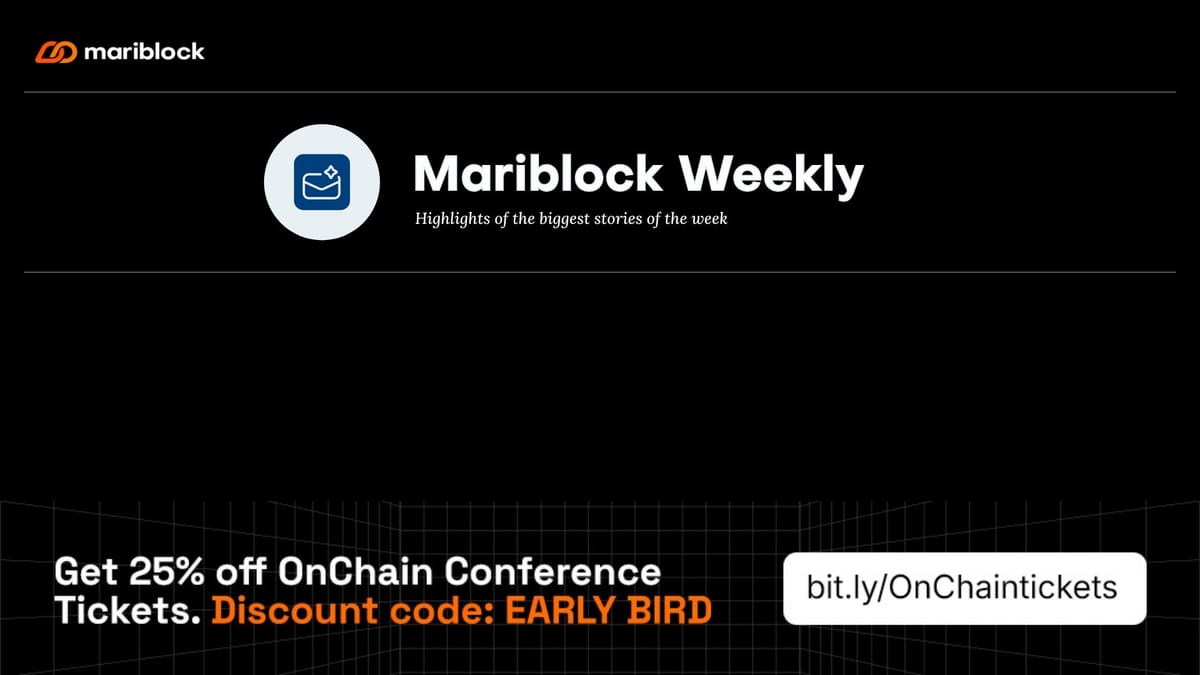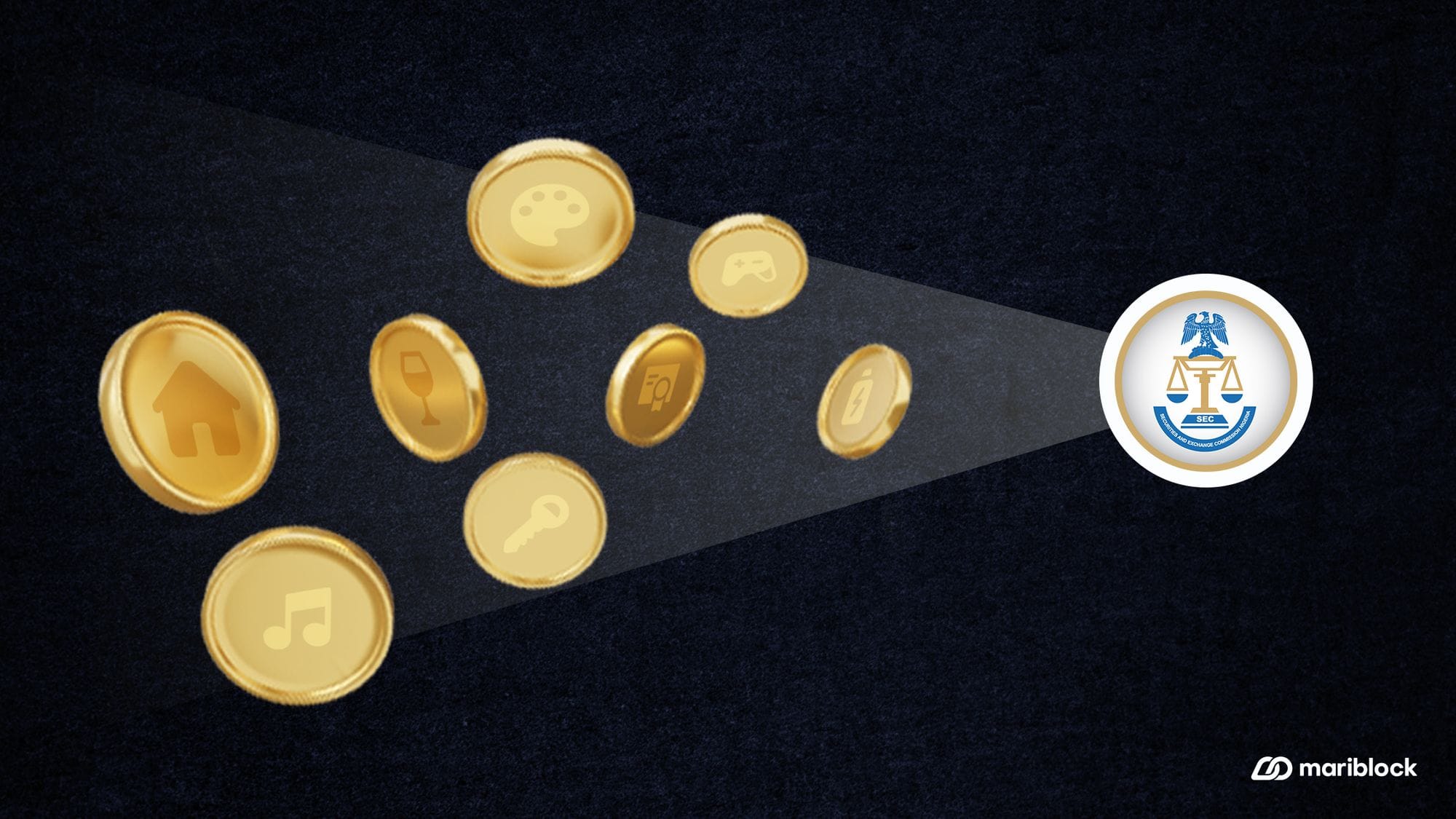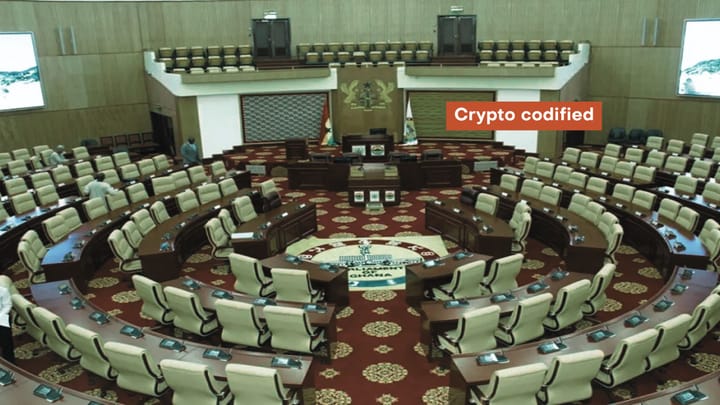🟠 Flutterwave jumps on the stablecoin train
Plus: 🇳🇬 Nigerians prefer crypto investments and gambling to the capital market — SEC DG

Two big stories caught my attention last week: Flutterwave’s stablecoin partnership with Polygon, and Nigeria’s SEC Chief blaming crypto and gambling for the capital market’s struggles.
📌 Don’t miss:
The Catch Up section for other stories you may have missed.
Let’s dive in!
Flutterwave taps Polygon for stablecoin-powered cross-border payments

Topline: African fintech unicorn Flutterwave has partnered with blockchain infrastructure provider Polygon to power cross-border payments using stablecoins. (Details)
The details: In an October 30 blog post, Rotimi Okungbaye, Flutterwave’s Enterprise Marketing Manager, announced that the product will enter its pilot phase before the end of the year.
- The full rollout is expected next year, when the feature will be made available to businesses via Flutterwave for Business and to retail users through the Send App.
- Flutterwave will leverage Polygon’s stablecoin payment rails to enable fast, low-cost cross-border settlements for users across more than 30 African countries where the fintech operates.
- The partnership — which will run for an unspecified period — expands Flutterwave’s foray into decentralized finance and marks Polygon’s first integration with an African legacy financial institution.
What was said:
“By integrating on Polygon’s blockchain architecture, Flutterwave is enabling transfers of stablecoins (USDC, USDT) across our network. That means customers, large enterprises, growing SMBs, and everyday consumers can now send, receive, and settle payments in real time,” Okungbaye wrote.
Why it matters: Traditional cross-border payments to Africa are painfully slow and expensive — a $10,000 transfer can take up to $845 in fees.
- Stablecoins offer a faster, cheaper alternative, and more traditional finance players are paying attention.
- This year alone, Western Union, Mastercard, and Visa have all announced plans to integrate stablecoin products in Africa.
Nigerians prefer crypto investments and gambling to the capital market — SEC D.G.

Topline: The Director-General of Nigeria’s Securities and Exchange Commission (SEC), Emomotimi Agama, says the Nigerian capital market is losing a large share of potential investments to cryptocurrencies and gambling platforms. (Details)
The details: In an email to Bloomberg, Agama revealed that over 60 million Nigerians spend about $5.5 million daily on gambling platforms, while many others invest in cryptocurrencies and digital assets.
- He said that more than 60 million Nigerians own cryptocurrencies, compared to fewer than three million who invest in the capital market.
- According to Agama, while Nigerians have shown a strong appetite for investing, many avoid traditional stock and bond markets due to limited trust and access.
- This reluctance, he said, poses a challenge to Nigeria’s economic growth and deprives the country of liquidity needed to bridge its $150 billion annual infrastructure gap.
- He added that the government is now seeking to close this trust gap by bringing digital assets under SEC regulation.
What was said:
“This is a major impediment to economic growth and capital formation,” Agama told Bloomberg.
“An appetite for risk clearly exists, but not the trust or access to channel that energy into the productive sector.”
Key context: Nigeria ranks first in Sub-Saharan Africa for crypto adoption, with an estimated $92.1 billion in transaction volume — nearly triple South Africa’s total, according to Chainalysis.
- In 2023, the SEC launched a regulatory sandbox for crypto exchanges and subsequently issued provisional licenses to Quidax and Busha, though it has since paused new approvals to review the framework.
- Earlier this year, the Investments and Securities Act was signed into law, officially recognizing digital assets as securities and bringing them under the SEC’s oversight. The law gives companies one year to comply once it’s enacted.
Catch up

🇳🇬 These Nigerians built a blockchain solution valued at $200m (Techpoint)
🌍 Binance Expands Crypto Access to Over 30 African Countries With Local Payments (Coinspeaker)
🌍 Yellow Card exits retail to go all in on B2B (TechCabal)
That’s all for this week!
If you found this helpful, please consider sharing it with a friend or colleague or forwarding it online.
Till next week,
Ogechi.



